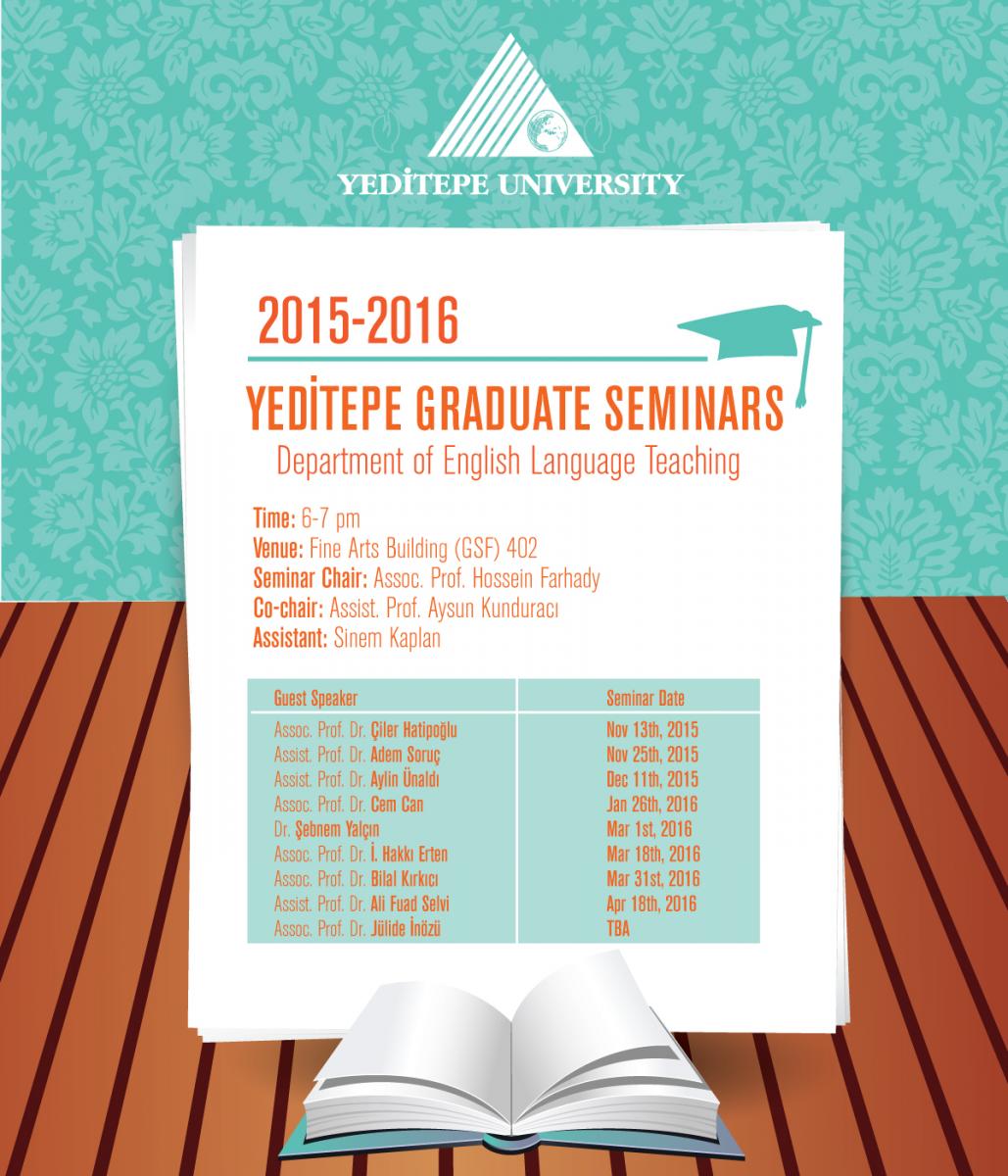Yeditepe Graduate Seminars / Güzel Sanatlar Binası (GSF) 402
Yeditepe ELT Graduate Seminars 2015-2016, Dept. of English Language Teaching
Date: March 31st, Thr @ 6 pm
Venue: GSF 402
Guest Speaker:
Assoc. Prof. Dr. Bilal Kırkıcı (METU)
Title:
Native and Non-native Morphological Processing: The Current State of Affairs
Abstract:
The representation and processing of morphologically complex words has been a fundamental topic in research on visual word recognition in psycholinguistics. It has been debated whether morphemic information plays a role in the storage and access of complex words. Although findings from a multitude of experimental studies (e.g., Marslen-Wilson et al., 1994; Rastle et al., 2000) have led to a general agreement that in the L1 processing of complex words morphology plays a significant role and L1 users employ morphological decomposition, the question of exactly how and when this decomposition is carried out is still a point of hot debate (Li et al., 2015).
Lately, the debate has gone beyond L1 processing and an increasing number of studies focusing on the processing of inflected and derived words in various languages by L2 users (e.g., Basnight-Brown et al., 2007; Clahsen & Neubauer, 2010; Gor & Jackson 2013; Kırkıcı & Clahsen, 2013; Heyer & Clahsen, 2014) and, very recently, also by heritage speakers (Jacob & Kırkıcı, under review), have been conducted. The aim in the latter group of studies has predominantly been to answer the question whether non-native morphological processing is based on the same processing mechanisms as L1 morphological processing. The results obtained from these studies have so far been rather inconclusive as some suggest no L1-L2 differences in the processing of morphologically complex words (e.g. Diependale et al., 2011; Feldman et al., 2010) while others report clear processing differences (e.g.
Neubauer & Clahsen, 2009; Kırkıcı & Clahsen, 2013; Jacob & Kırkıcı, under review).
In this talk, I will present an outline of the current state of affairs in native and non-native morphological processing research. In particular, I will talk about the theoretical background of the continuing debate regarding automatic morphological decomposition, summarize the prevalent methodological approaches and present an overview of the findings obtained in studies with L1, L2 and heritage speakers.
